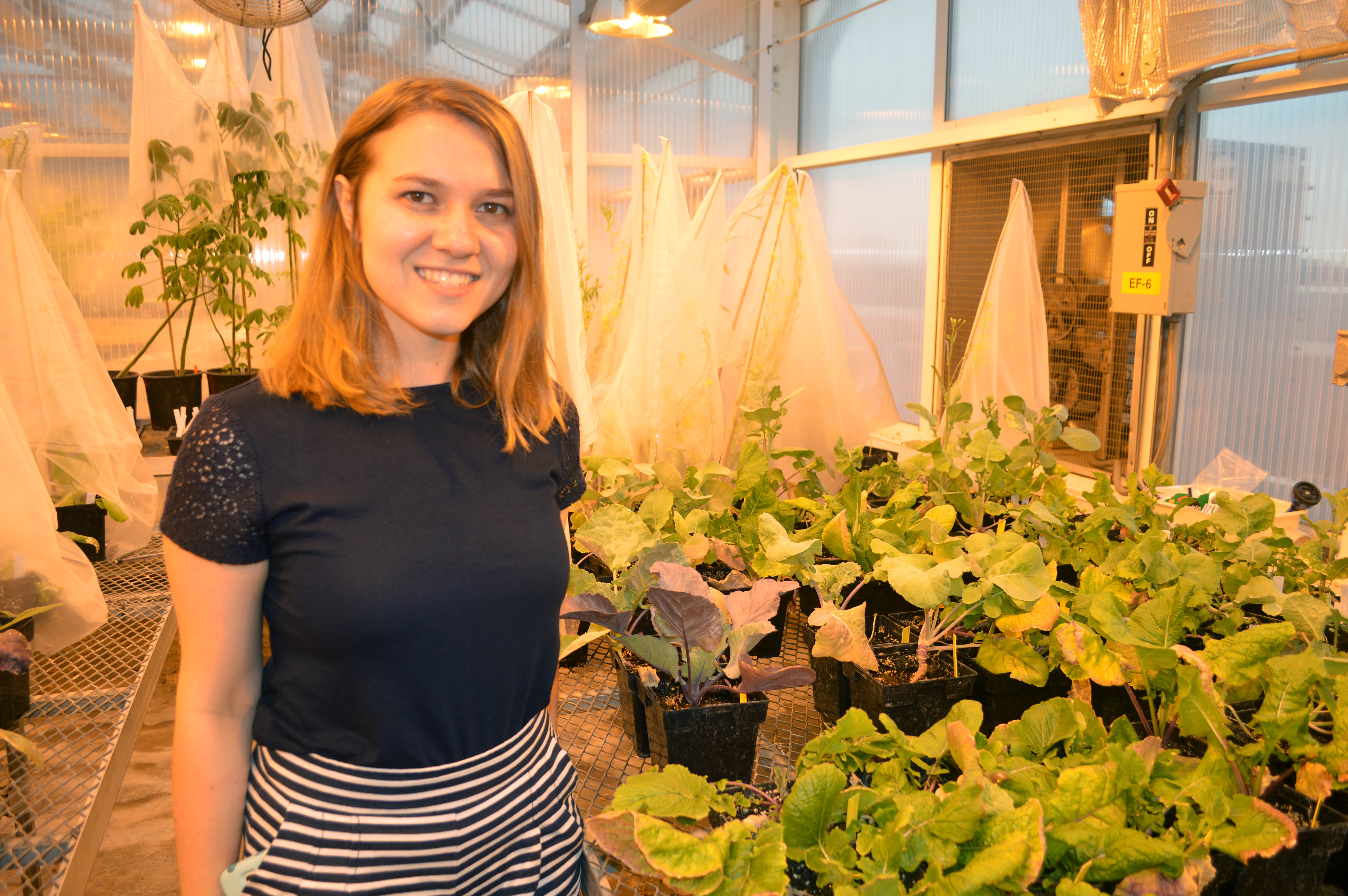 Spending the summer on the coast of northern California is something many dream of doing to relax and unwind. For Julia Brose, it was a summer of hard work.
Spending the summer on the coast of northern California is something many dream of doing to relax and unwind. For Julia Brose, it was a summer of hard work.
Brose is a junior from Wildwood, MO, studying biochemistry.
“I really fell in love with biochemistry because I love seeing how molecules work on a very detailed level. I really enjoyed it so I kept with it, then I joined an evolutionary biology lab,” Brose said.
Soon after starting school at MU, Brose applied for and was accepted to the Freshman Research In Plant Sciences (FRIPS) program through the Office of Undergraduate Research. She began work in the lab of Dr. Chris Pires in the Bond Life Sciences Center, and remains there today.
“A couple of weeks after starting at Mizzou I thought, ‘Wow, this is really what I want to do. I really think evolution is so interesting.’ I just fell in love with the plants because they’re plants everyone knows—broccoli, cauliflower and kale,” Brose said.
Brose credits her FRIPS experience as the building block for her knowledge in research today.
“There’s no way I would have even known to apply for these things if I hadn’t been doing research and there’s no way I would’ve had the requirements to meet these expectations if I wasn’t doing research.”
“Learning about the plants is probably the greatest takeaway I got from my freshman year, because you really can’t do research if you don’t know what your organism is,” Brose said. “I’ve done research projects in school and I’ve always loved looking things up and learning things. But really it was when I started in the FRIPS program I learned what actual scientific research was, and I’ve enjoyed it so much that I’ve continued doing it.”
After working on multiple research projects in the Pires’ lab, Brose was awarded an American Society of Plant Biologists Fellowship. The $4000 fellowship funded her to spend the summer at Stanford University, working with a researcher that collaborates with Dr. Pires throughout the year—Dr. Elizabeth Sattely in the Department of Chemical Engineering.
Her project at Stanford involved researching plant defense compounds, called phytoalexins, in the same types of plants she began working with in her first lab.
“We wanted to find phytoalexins that were different within very commonly related species, or within one species, and then express it into another plant. It’s just really, really cool science,” Brose said.
Although she did not participate in a poster session to conclude her time at Stanford, Brose looks forward to presenting at the American Society of Plant Biologists annual meeting in Honolulu, Hawaii during the summer of 2017.
“There’s no way I would have even known to apply for these things if I hadn’t been doing research and there’s no way I would’ve had the requirements to meet these expectations if I wasn’t doing research,” Brose said.
“I think by being in undergraduate research, you’re surrounded by people who genuinely want to teach you and want you to learn and want you to succeed.”
Back at MU, Brose is currently in a molecular evolution class in which she has to complete a research project. She has combined her past projects with her research conducted over the summer to create a new hybrid project. In the future, Brose hopes to redo some of her experiments from the summer to produce more concrete results.
Brose hopes that other students can see the benefits and opportunities that come from doing research, and get involved themselves.
“You learn so much—you learn way more than you would in a classroom,” Brose said. “I think by being in undergraduate research, you’re surrounded by people who genuinely want to teach you and want you to learn and want you to succeed. I think having that kind of support is really healthy, especially when college can get kind of stressful.”
With so much research experience under her belt, Brose has decided there is only one thing she would’ve done differently.
“If I were going to do something again, I think I would’ve read more scientific literature earlier. That’s the building block. Set a goal, read a paper a week or something like that—I think that would really help,” Brose said.
Looking toward the future, Brose hopes to continue with research throughout her professional career after graduation.
“I think I want to run my own lab. I don’t know if it would be in academia or industry, but I definitely like coming up with questions and hoping to find the answer,” Brose said.